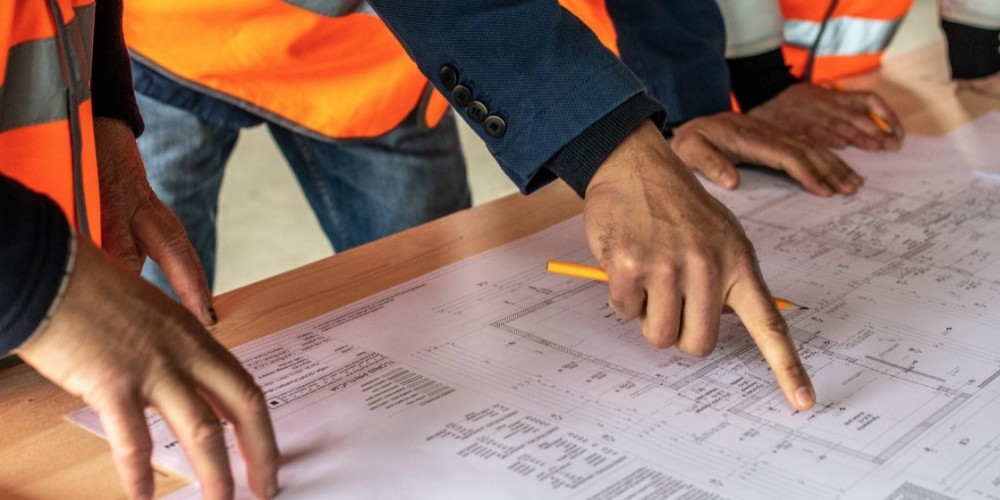VET in schools: towards a model for Year 12 & 13 in New Zealand schools
This project will look at the current state of Vocational Education and Training (VET) in schools with the goal of producing a compelling business case for change. The outputs will be a systems gap analysis and a business case to advance a consistent and equitable model for VET in schools for Year 12 & 13 students in New Zealand.

The issue
There are several issues with the current delivery of Vocational Education and Training (VET) in schools, including:
· Career pathways in construction and infrastructure are frequently overlooked.
· Funding streams are complex and vary between schools.
· Outdated mental models persist regarding students not perceived as "academic" being directed towards trade pathways.
Intended outcomes
There are two outputs for this project, being completed at the same time
· Systems gap analysis: using the six conditions of change, the system gaps analysis will help identify the key issues within the system, the barriers in place, the mental models and importantly what the issues are that are holding the problems in place.
· Business case: this output will create the case to reimagine VET in schools. The key questions:
- If we were creating VET in schools today, what it would be like?
- What is the ideal state in 2024 from the perspective of schools, learners and industry?
View the VET in Schools discussion paper here: ConCOVE VET in Schools Analysis discussion document
The steps
Step one: Discovery phase
- Desktop research, looking at current VET delivery models in New Zealand and overseas
Step two: Diagnose phase
- Thematic analysis – analysing and synthesising key themes from the discovery phase
- Systems change analysis and identifying levers for change.
Step three: Reimagine phase
- Identify the ideal mechanisms/interventions to close the gaps and pull on the levers for change that have been identified
- Produce a compelling business case for change.
Lead organisation: ConCOVE
Contract Research organisation: ThinkPlace
Project Status: Complete
Contract Research Organisation: ConCOVE

Related projects
Funding of workplace training and work-integrated learning for the construction and infrastructure industries
Funding of workplace training and work-integrated learning for the construction and infrastructure industries
Evaluation of government policy settings for apprentices
Understand the extent to which government apprenticeship policy settings are working

Supporting technical experts to become work-based trainers
Developing and trialing tools and resources that support work-based trainers to improve their practice
Degree-level apprenticeship (DLA) comparative pilot
Degree-level apprenticeship pilots
The place of micro-credentials in New Zealand
The place of micro-credentials in New Zealand
Investigating training advisors in work-based learning in the construction and infrastructure sectors
Analysing systemic forces for workforce development alongside

Civil Construction: A requirement for a robust and reliable training pipeline
Providing recommendations to combat the skilled labour shortage
Offsite manufacturing workforce forecast
Forecasting the size of the offsite manufacturing workforce required across the next 5-10 years

Workforce journey indicators data dashboard
A data project to understand how people navigate in and out of the construction workforce
Where is the front door? An investigation into the workforce entry points within the Construction and Infrastructure sector
Mapping the multiple entry points into the construction and infrastructure sectors

Environmental competency training
Ascertaining the specific skills required to meet the government’s environmental goals
Framework for Māori in high-skill roles
Understanding skills shortages experienced by Māori firms to support Māori into high-skill roles

From skilled industry practitioner to Kaiako
Analysing the current kaiako training to identify effective practices in classroom-based tertiary education

Temporary traffic management credentials framework
Informing the development of an improved TTM Credentials Framework

The New Zealand Quarrying Industry’s Possible Futures Toward 2030
Predicting the trends that will impact the quarrying industry to guide quarrying practice
Women’s experiences working in Construction and Infrastructure
Women’s experiences working in Construction and Infrastructure
Skill standards
Good Practice in the Development and Implementation of Skill Standards-Based Qualifications
Neurodiversity
Neurodiversity
Pathways to Successful SMEs
Pathways to Successful SMEs
A Case Study: Cook Brothers Construction Apprentice Academy
A Case Study: Cook Brothers Construction Apprentice Academy

AI Generated Assessment
Using artificial intelligence to create high-quality, engaging, and personalised assessments
A Case Study: Augmented reality in welding training
A Case Study: Augmented reality in welding training
Future workforce skills for Māori and Pasifika owned businesses in construction
Industry Analysis
ConstrucTrend: Vocational Workforce Survey
ConstrucTrend: Vocational Workforce Survey
Co-design guidance for allyship (upstander/ bystander) training
Practical guidance for providers and employers to implement allyship/upstander training in their organisation…